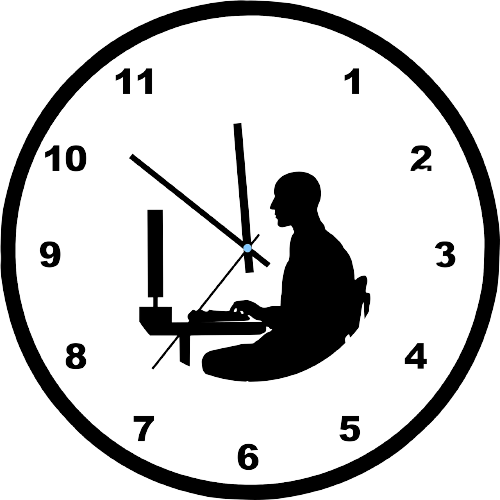The human body is amazing. It even comes with its own clock. This internal, or biological clock tells us when it’s time to eat and sleep. It will council us that, yes there are only two episodes of Lucifer left but it really is time to go to bed.
Your biological clock really likes the 8 – 5 work schedule, a normal circadian rhythm. But, not everyone is lucky enough to have that schedule and that’s where the trouble starts.
Multiple studies have shown that our biological clocks are not happy when we disrupt their normal rhythm. Trying to sleep when it’s light or work when it’s dark is a little unnatural. Weight gain, health problems, increased alcohol use, and problems in socializing have all been linked to shift workers. If you’ve been a night shift worker you may also recognize a decrease in alertness as a symptom of trying to change your biological clock.
Of course each person is different, but you can assume that it takes several days to adjust to a change in work – sleep patterns. That’s why I’m always amazed at companies who are constantly changing people’s schedules. This is especially prevalent in the retail world. Managers schedule workers with a system that makes sense to no one moving them from one shift to another, completely ignoring the effects on the individual when they don’t have time to adjust. Then they wonder why they have higher accident rates.
Shift work is necessary. The world doesn’t just stop at 5:00 PM. So how can you help your team member’s circadian rhythm?
1. Make long-term schedules. Don’t make people constantly readjust their biological clocks.
2. When schedule changes are necessary, allow for time to adjust. Realize their performance may suffer until they can adjust.
3. When possible, allow team members to select the shift they prefer. Some people are more comfortable working at night and don’t seem to have the same problems that others do.
4. Don’t neglect the night shift. Frankly, some people like the night shift because there is less supervision. Although I don’t expect leaders to cover all shifts all the time, it’s good to let people know you haven’t forgotten them. Yes, this will tend to mess with your biological clock, so be aware of that; it’s a sacrifice you will need to make.
5. Keep those long distance Zoom calls in mind. If you’re a good leader you will adjust the time of these calls to spread the inconvenience. If someone needs to be on a call late in the evening or early in the morning, give them a little recovery time.
Now that many people are working from home, I urge you to consider a form of Results Oriented Work Environment (ROWE). In this approach, schedules are less important than accomplishments. Concentrate on what needs to be done, not on inflexible schedules. Also, don’t expect your team members to always be available. Yes they are home anyway and what else do they have to do? They still need time to relax, be with their families or even finish binge watching Lucifer.
For video leadership tips go to Bob’s YouTube channel.
